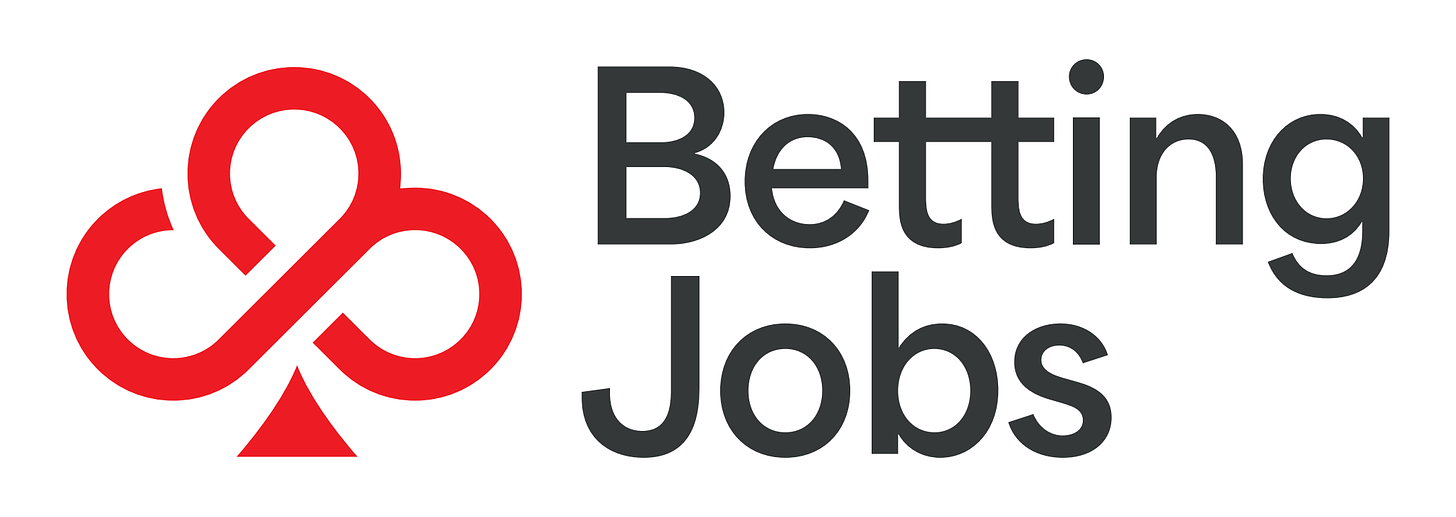Entain takes £585m HMRC hit
Entain’s Turkish bill, Penn loses Portnoy headache, Ladbrokes’ ASA charge, Philip Davies’s Commission rant, open banking examined +More
Good morning. On today’s agenda:
Entain makes provision for settlement over previous Turkish activities.
Penn Entertainment sheds its social media baggage.
Ladbrokes makes another tweet marketing slip.
Pro-gambling MP’s attack on the UK Gambling Commission.
Financial risk checks series – opening for open banking?
Ukraine mulls bank block on self-excluded.
Entain’s provision
Entain makes a £585m provision against HMRC settlement.
Let’s talk Turkey: Entain’s legacy operations in Turkey have come back to bite it after it said this morning that in relation to the HMRC investigation, it was provisioning £585m in respect to the previously notified deferred prosecution agreement.
The company said that negotiations have “now progressed” to the point where it believes it will reach an agreement with the HMRC and will take a charge of £585m against the likely settlement.
“While the full terms of a DPA are subject to judicial approval, the company has a sufficient degree of confidence to take a provision of £585m against a potential settlement, which would be paid over a four-year period in relation to alleged offenses under Section 7 of the Bribery Act 2010,” Entain said this morning.
The company said it expects judicial approval of the settlement deal to come in Q4.
Crime and punishment: The section of the Bribery Act referenced “relates to the failure of a relevant commercial organisation to have adequate procedures in place designed to prevent persons associated with it from undertaking bribery for the benefit of the commercial organisation”.
Entain said the amount of the provision had been calculated on the basis that the company “will receive full credit for its extensive cooperation with the investigation prior, and subsequent, to entering into any DPA”.
It added that since the investigation first commenced it had “undertaken a comprehensive review of anti-bribery policies and procedures and has taken decisive action to significantly strengthen its wider compliance programme and related controls”.
The big boys did it and ran away: Chair Barry Gibson laid the blame for the prosecution firmly at the door of the previous management team led by former CEO Kenny Alexander.
“We are pleased to be making good progress towards drawing a line under this historical issue, which relates to a business that was sold by a former management team of the group nearly six years ago,” he said in a statement.
“We have been working closely with the CPS throughout this process, and they have recognised our extensive cooperation,” he added.
“Following a complete overhaul of our business model, strategy and culture in the last few years, the Entain of today bears no resemblance to the GVC of yesterday.”
Bullet dodged: Recently, 888 said it had been threatened with a license review after it received an approach from an investor group called FS Gaming that intended to get Alexander installed as its CEO.
888 called off the talks after consulting with the UK Gambling Commission and has since installed Per Widerström as its new boss.
** SPONSOR’S MESSAGE ** With Kentucky, Maine and Vermont set to go live within the next six months, operators in these regions can use Compliable’s platform to ensure a smoother licensing journey.
Simplified license applications – ability to apply across multiple states
Help along the way – FAQs portfolio and 1-to-1 support available
Unique Compliance Dashboard – manage licenses and track applications
Read more about the onboarding process here
Pass the Portnoy
By giving Barstool back to its founder, Penn has shed a huge regulatory overhang.
Under a black flag we shall sail: Dave Portnoy took to X (previously Twitter) to say that his company Barstool and Penn Entertainment has “underestimated just how tough it is for myself and Barstool to operate in a regulated world”.
“We did this deal about three years ago and we thought it was going to the moon,” he said.
But as Penn found out to its cost, “every time we did something, it was one step forward two steps back,” Portnoy added. “We got denied licenses because of me.”
“So the regulated industry probably was not the best place for Barstool Sports and the kind of content we make.”
He added that he wished Penn “nothing but the best”.
“But for us, Barstool, for the first time, as of forever, we don’t have to watch what we’re saying, what we do. It’s back to the pirate ship.”
Referencing The Godfather: Part III, he said: “Every time I think I’m out, they pull me back in”.
“I’ll never sell Barstool. I’ll hold it ’til I die,” he concluded.
Controversy magnet: The most recent storm surrounding Barstool came at the time of Penn Entertainment's Q1 earnings announcement in early May when Portnoy took to social media to explain the sacking of influencer Ben Mintz over a racial slur he used in a broadcast.
Portnoy took to the then Twitter at the time to say the decision “sucked” but that “Penn operates in a world that we don't operate in”. “They are highly regulated,” he said. “They’re issued licenses for gambling that just as easily as they’re issued they can be pulled.”
This is on top of previous controversies regarding Portnoy and sexual misconduct allegations.
Snow-job: Talking about the deal with Barstool, Jay Snowden, CEO and president of Penn, said “we felt great at the time”. Noting Portnoy’s X ‘press conference’, he agreed that “it became obvious to both parties that there is, long-term, only one natural owner of Barstool Sports and that is Dave Portnoy”.
“It became clear we were an unnatural owner.”
Ladbrokes ASA charge
Four tweets (or Xs) by Ladbrokes promoting the Australian Open breached rules around marketing to young people, the UK’s advertising regulator said on Wednesday.
Hawk eyes: The Advertising Standards Agency (ASA) used a new AI monitoring system to search online for suspect ads, which flagged Ladbrokes’ use of tennis stars in the tweets as improper. Ladbrokes claimed its campaign across January and February 2023 around the Australian Open was purely editorial, as none of the tweets encouraged gambling.
As several players were featured in the imagery, the operator submitted data on the social media profiles of each to argue their followings were almost entirely adults.
However, the regulator said that, as Novak Djokovic, Rafael Nadal, Nick Kyrgios and Stefanos Tsitsipas had all appeared in Grand Slam finals, the argument didn’t hold water.
It said the tweets were “irresponsible” and breached the code, reminding Ladbrokes not to include sports stars with “strong appeal” to those aged under 18 in its advertising.
Lawyers said the ruling is consistent with the ASA’s crackdown on advertising with football players, highlighting the risks associated with naming any high profile star regardless of whether in a campaign or not.
Davies rant
Pro-gambling MP goes on a tirade over UK Gambling Commission.
Get a grip on yourself: Accusing the Commission of being the “most out-of-touch regulator” in the UK, the distinctly gambling-friendly Philip Davies said the “racing-friendly” government of Prime Minister Rishi Sunak would intervene to stop a gambling authority he accused of being run by “zealots”.
"The government has to get a grip of the Gambling Commission," Davies added.
"They can’t leave it to them because they will destroy the racing industry and people’s enjoyment of betting."
Seven days is too long, without you: An incredulous Davies complained about the proposal from the Commission to not take winnings from anything longer than seven days into account.
“What on earth is that about?” he added.
"Say you just bet at major meetings. You could win £20,000 at Cheltenham, and if you lose £1,000 at Aintree you’ll be facing affordability checks,” he claimed.
“You’d have to be an absolute moron to think that makes sense. It’s embarrassing.”
Devastation: He warned that the Commission’s checks would directly affect the racing industry. "We’re going to find that tens of thousands of people, who are not problem gamblers, are going to be stopped from gambling any meaningful amount by the Gambling Commission,” he claimed.
"And it’s going to have devastating consequences for the horseracing industry,” he added.
“I think the racing industry and the bookmakers are being complacent about the effects, which are going to be crippling and absolutely devastating."
Nanny goat: At the start of August, the editor of the Racing Post also railed against the Commission’s planned ‘nanny state’ agenda for financial risk checks. Tom Kerr said the plans were “offensive, meddlesome and damaging”.
Financial risk checks series
How open banking changes the landscape.
Skepticism: For all the talk in the Gambling Commission’s consultation on financial risk checks – and despite open banking being proposed by the White Paper as one potential solution to the second-level checks being proposed – there is still a large degree of skepticism around whether open banking will be adopted by the sector.
The bare facts: The problem is take-up. According to the latest figures from the Open Banking association, in 2022, 7m British adults used open banking.
This represented a rise of 2m on the year previous, but up 2m only represents a fraction of British adults.
Kirsty Caldwell from Betsmart Consulting says the argument often put forward against the use of open banking is that customers “don't want to share all of that information with a gambling company”.
However, she adds, as it stands they have to share it anyway “but they have to do it in a very clunky and archaic way”.
Tom Farrell, chief marketing officer at ClearStake, agrees. “The existing process is so clunky right now,” he says.
Official stamp: Caldwell believes at the end of the consultation period, the likelihood is that the Commission will end up “strongly recommending” the adoption of open banking. “That would make it very hard for an operator to not go down that path,” she adds.
“I firmly believe that the industry has to embrace open banking and, whatever the government or the Commission say, I just think it makes commercial sense.”
“They need to test it,” she says.
“Open banking is becoming ingrained in everyday life. You have to use it for a lot of different things now and, personally, I think it's absolutely how this area will develop.”
Richard McCall, CEO at open banking-based financial checks provider Armalytix, suggests that arguments against open banking adoption are based more on prejudice against the idea rather than actual experience.
“Unless the operator is engaged with the whole process of understanding what the user journey is going to be, then if they have that immediate block of ‘oh, we don't think it's going to work’,” he points out.
“Then it won't work because you're not going to be putting the process in place which can make it work.”
Breaking the mold: Charles Cohen, founder and CEO at the Department of Trust, makes the point that what the government has said in the White Paper represents a “fundamental change” to the way the industry and the consumer react around affordability and responsible gambling.
“We want to enable operators to move on from today’s ‘stop-and-search’ model, with deposit blocks, stake limits and extensive disclosure requirements that damage trust and relationships, with refusal rates in the high 80% levels,” he says.
Farrell notes, meanwhile, that the debate over risk checks isn’t just about affordability. “Obviously this is kind of very adjacent to AML,” he says.
“You kind of end up having to do the same thing on the job. That is, looking at financial data and interpreting financial data to reach a quick compliance decision related to data.”
** SPONSOR’S MESSAGE ** BettingJobs is the global leading recruitment solutions provider to the iGaming, Sports Betting and Lotteries sectors. Boasting a 20-year track record supporting the iGaming industry, and with a team of experts and world class knowledge, it’s no surprise BettingJobs is experiencing rapid growth with outstanding results. Does your company have plans to expand teams to cope with strong growth and demand?
Contact BettingJobs.com today where their dedicated team members will help you find exactly what you are looking for.
Ukraine self-exclusion
Banks will no longer be allowed to lend to self-excluded players under new Ukrainian gambling laws.
Don’t lend my man: Finance and tax officials have proposed updating regulations that would force banks to carry out enhanced financial checks on punters.
Individuals who self-exclude are blocked from gambling online and entering land-based venues in Ukraine. Under the legislative tweaks, they would also be stopped from obtaining credit from lenders.
The government still has to sign off the amendment.
Separately, wider reform proposals from the Ukrainian Commission for the Regulation of Gambling and Lotteries (KRAIL) were included in the government’s 2023 action plan.
It includes plans to freeze and cancel the licenses of gambling operators if they offer services in occupied territories.
The future of the regulator itself has yet to be decided; the country’s deputy prime minister has proposed dissolving the agency and replacing it with a more competent agency.
US notebook
Sen. Jeff Merkley and five of his Democratic colleagues have sent a letter to the Commodity Futures Trading Commission (CFTC) asking the financial regulator to reject a proposal from predictions outfit Kalshi to allow gambling on US elections.
Kalshi, a regulated trading exchange, notified the CFTC in June that it wants to allow people to wager on election outcomes.
European notebook
Greece: The Hellenic Gaming Commission is seeking feedback from proposed changes to Greece’s gambling laws. The draft regulations propose new administrative controls for casinos in the interest of public safety, including a card-based system to track customer participation and spending on slots and electronic games.
An +More Media publication.
For sponsorship inquiries email scott@andmore.media.










